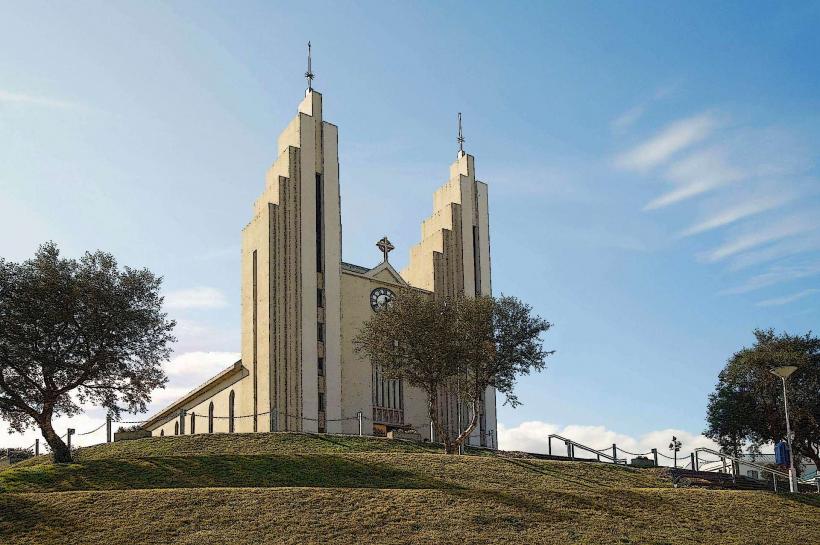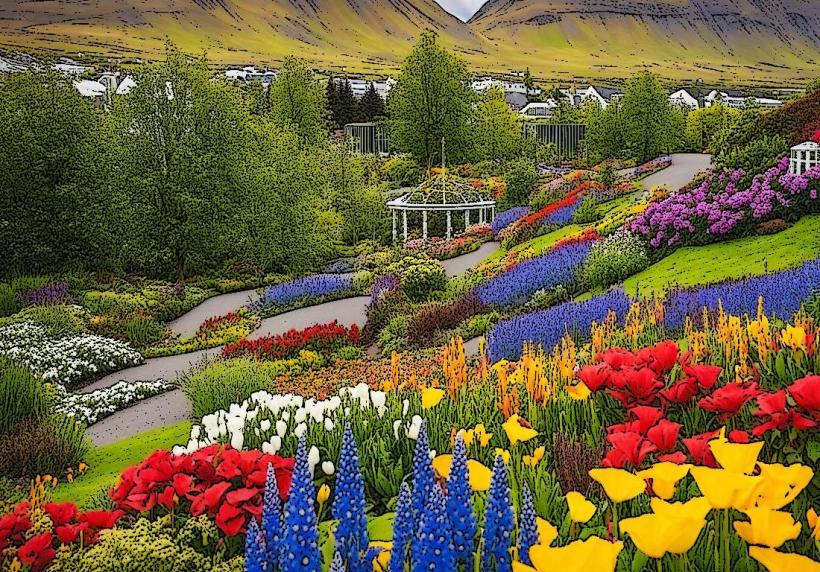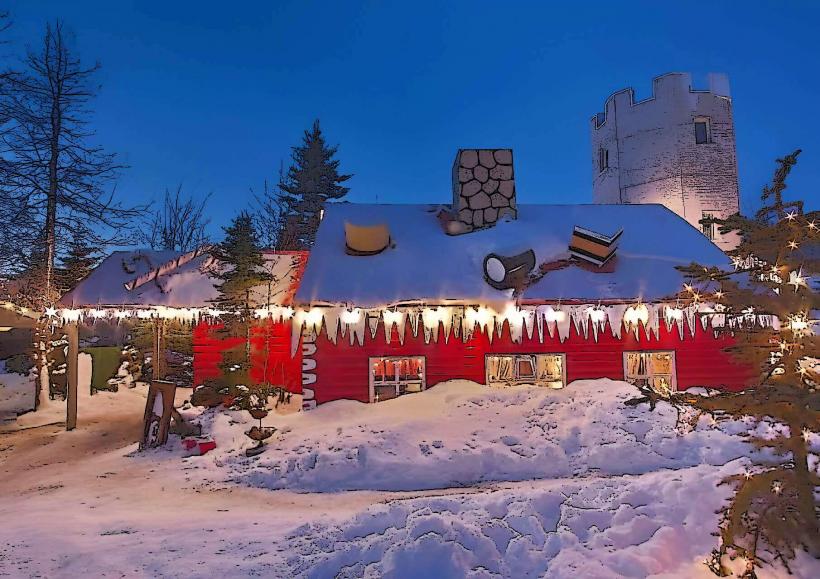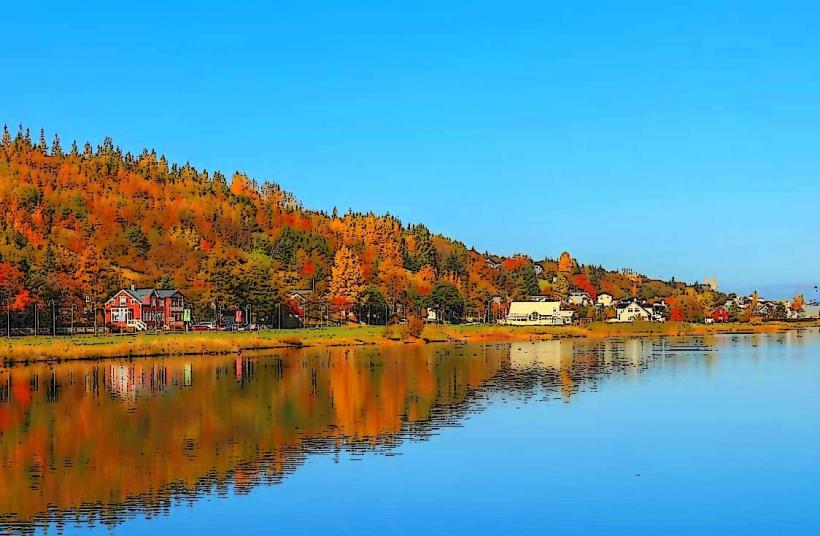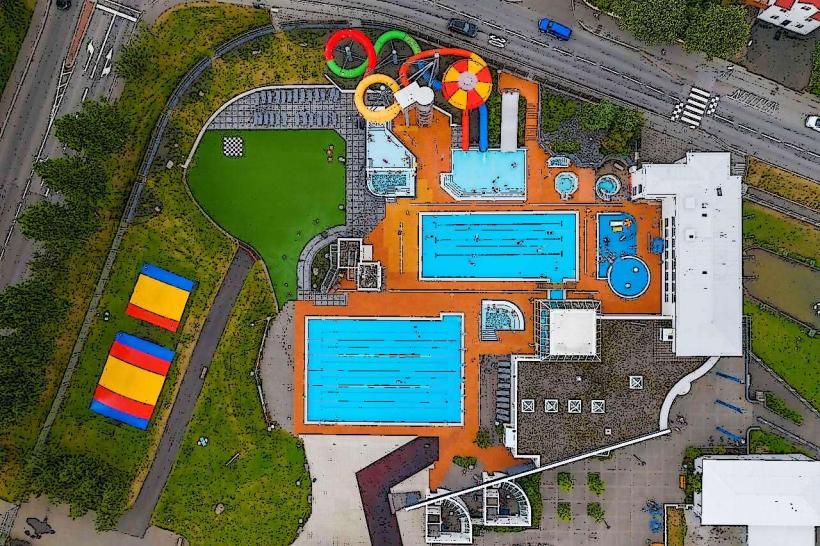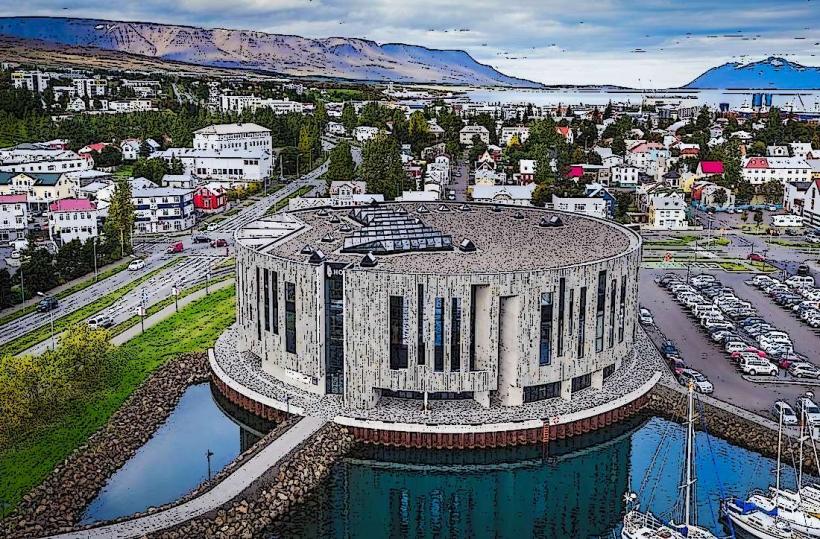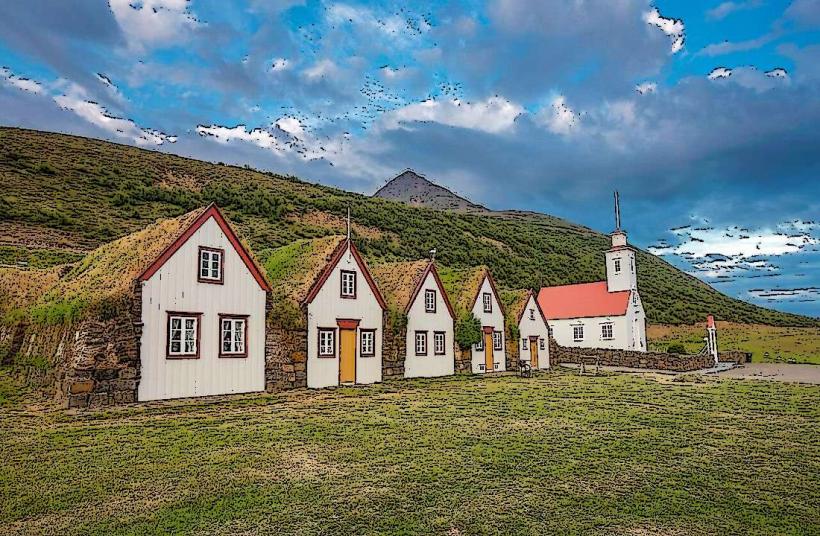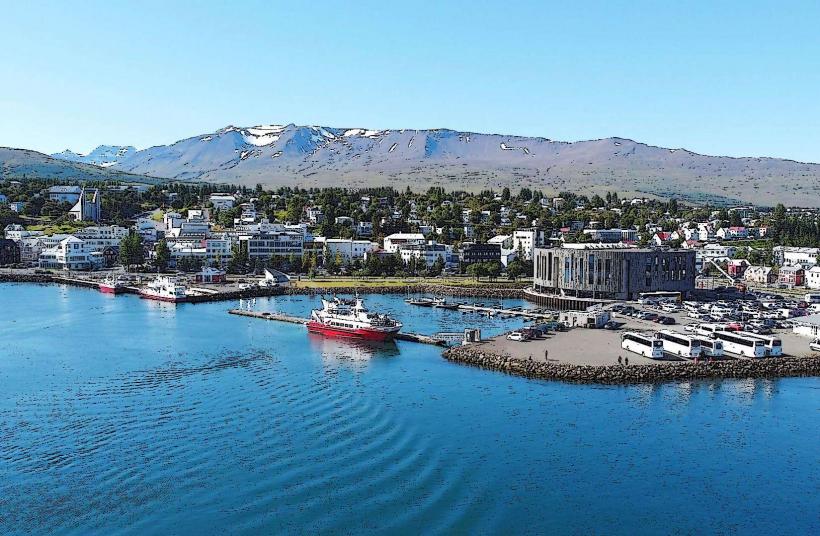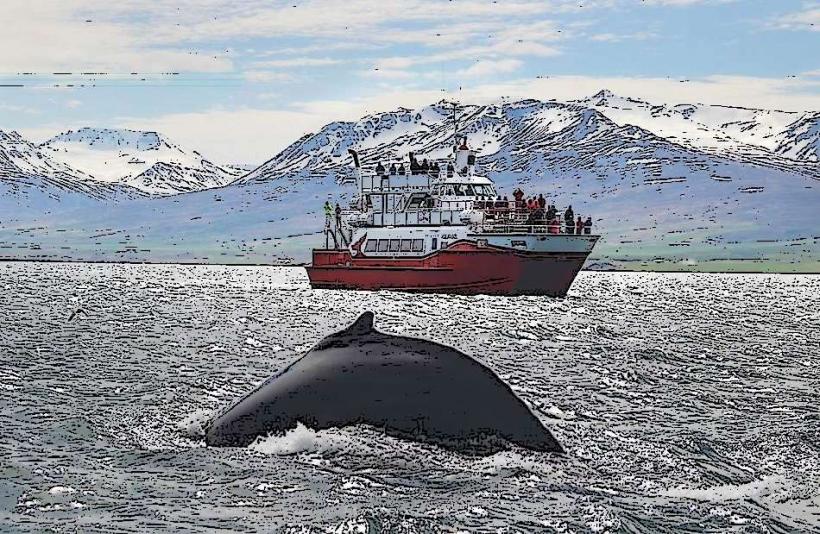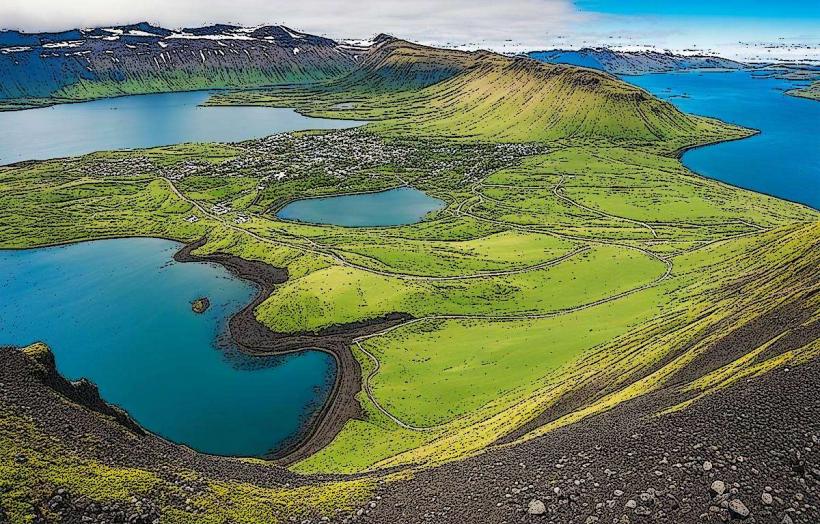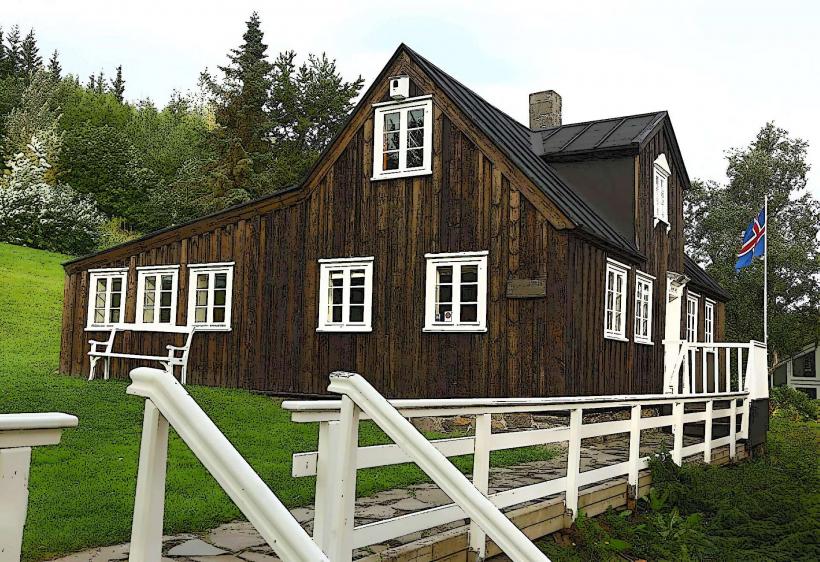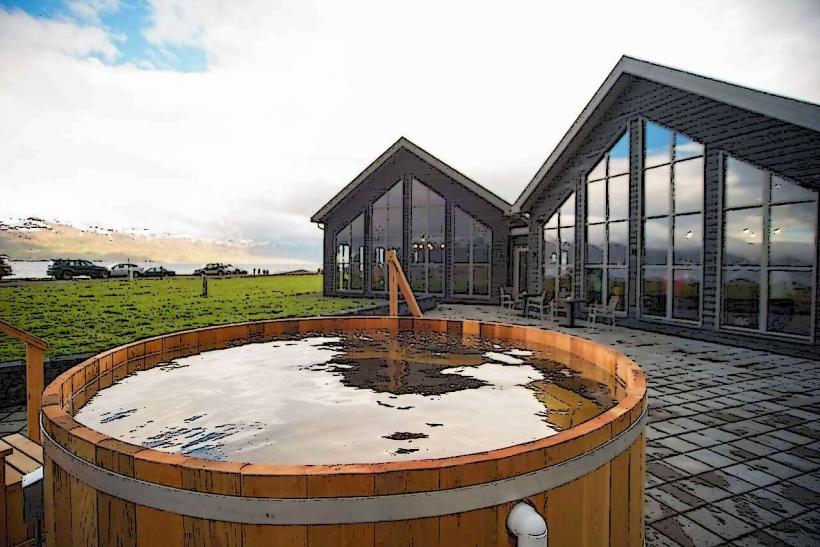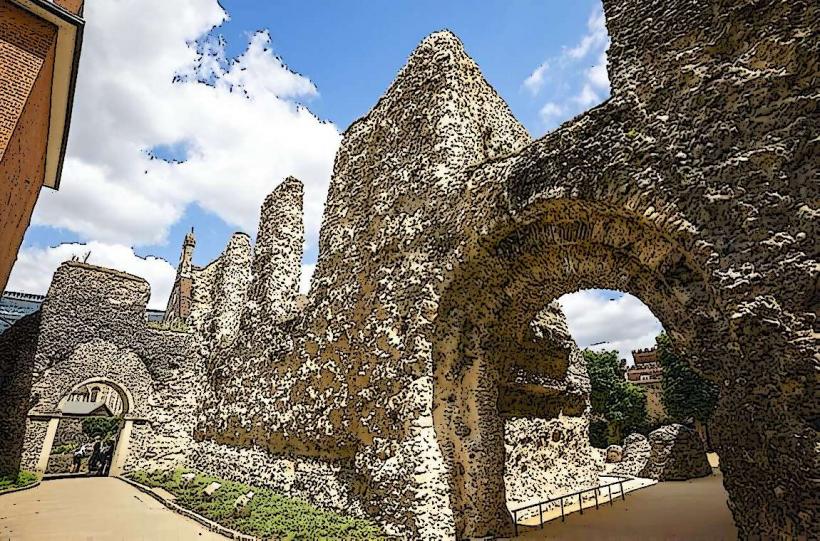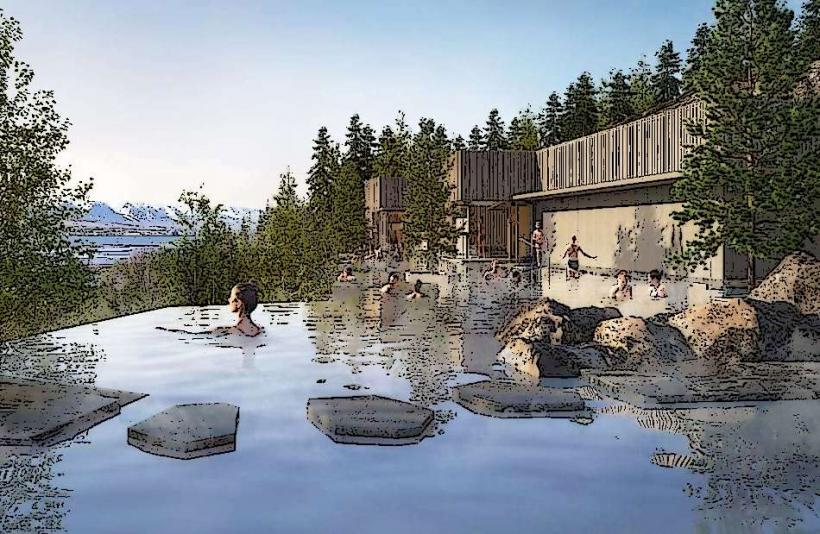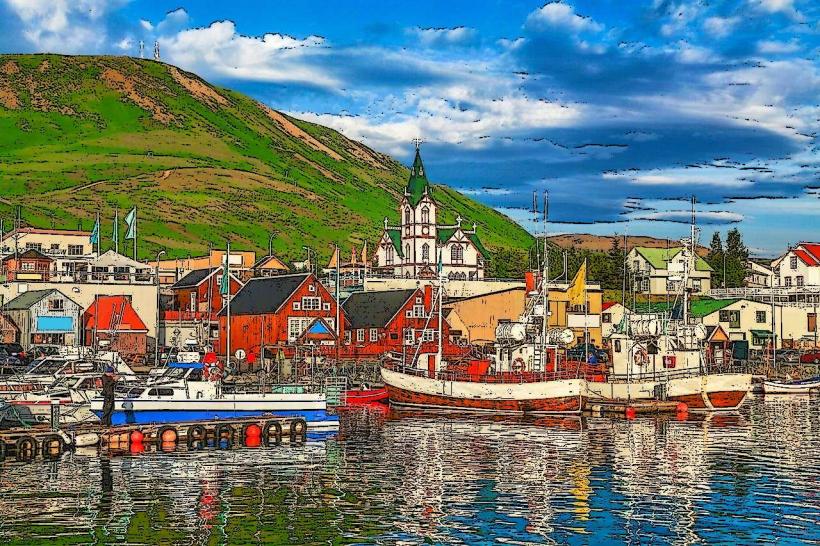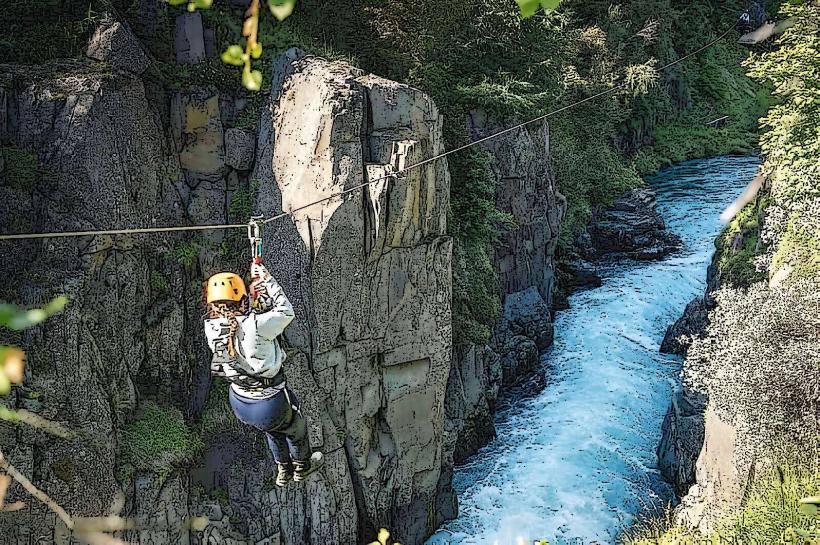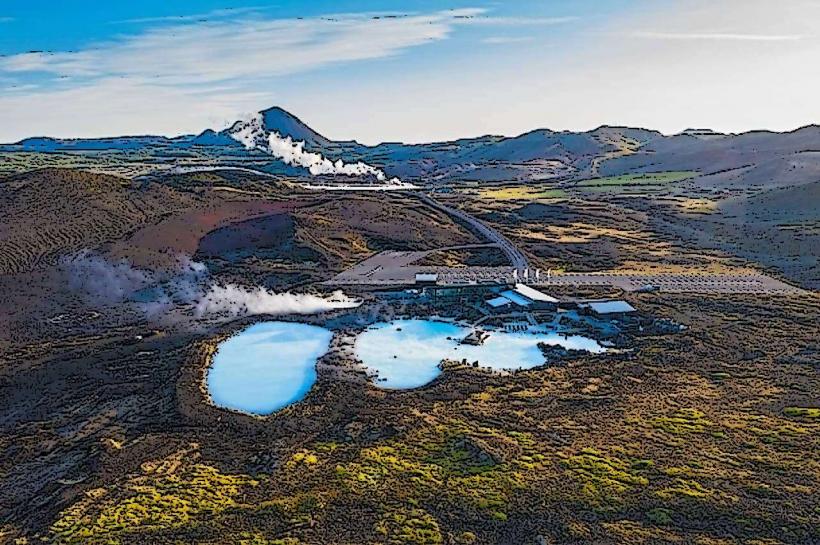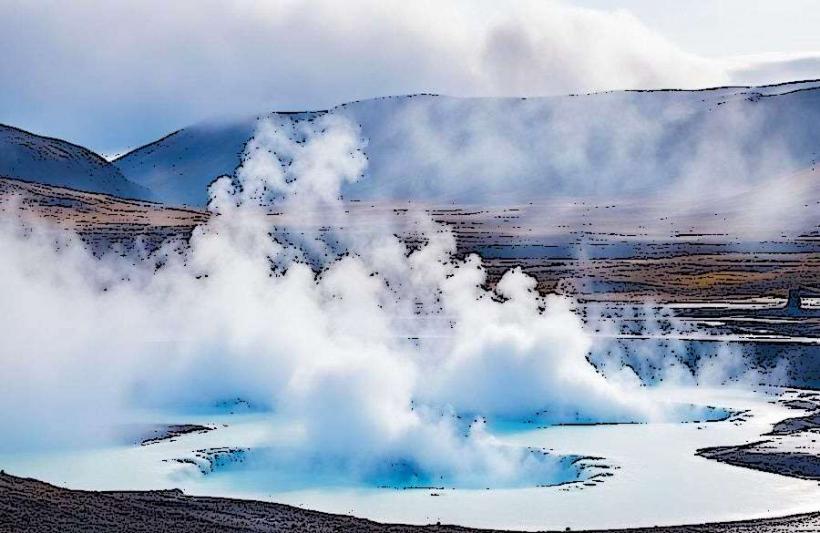Information
Landmark: Lake Mývatn Bird Watching AreaCity: Akureyri
Country: Iceland
Continent: Europe
The Lake Mývatn Bird Watching Area is one of Iceland's most important and biodiverse bird-watching locations. Located in North Iceland, around the shores of Lake Mývatn, this area is known for its unique combination of freshwater ecosystems, volcanic landscapes, and abundant wildlife, especially birds. The lake and its surrounding wetlands host a wide variety of bird species, making it a popular destination for both casual nature enthusiasts and serious bird watchers.
Key Features of the Lake Mývatn Bird Watching Area
1. Lake Mývatn Overview
- Lake Mývatn is a large, shallow lake formed by a volcanic eruption about 2,000 years ago. It is surrounded by geothermal areas, lava fields, and a rich network of wetlands, which together create an ideal habitat for various bird species.
- The lake itself covers an area of about 37 square kilometers (14 square miles) and is surrounded by wetlands, marshes, and reed beds, which provide a diverse range of habitats for birds.
2. Rich Bird Life
- Lake Mývatn is home to over 100 species of birds, making it one of Iceland's most important bird-watching areas. It serves as a crucial breeding, migratory, and feeding ground for many species of ducks, geese, and other waterfowl.
- Notable species found in the Mývatn area include:
- Common eider: A large sea duck, often seen around the lake.
- Northern shoveler: A distinctive duck species with a broad, spatula-like bill.
- Barrow’s goldeneye: A small duck species that breeds around the lake.
- Whooper swans: These large, graceful swans can often be seen during migration periods.
- Teal: Both blue-winged teal and green-winged teal are commonly found in the area.
- Red-necked phalarope: A small wader bird known for its unique spinning behavior in the water during feeding.
- Arctic terns: These migratory seabirds are often seen in large colonies near the lake during the summer months.
3. Breeding and Migration
- Lake Mývatn is especially significant during the breeding season (spring and summer), when many species nest in the wetlands and reed beds surrounding the lake. Birds such as harlequin ducks, northern pintails, and garganeys can be seen nesting in the area.
- The lake is also an important stopover for migrating birds, particularly in the spring and autumn, when various species use the lake as a resting place during their long migratory journeys between breeding grounds in the Arctic and wintering areas further south.
- Birdwatchers may also spot waterfowl and other species during the winter months, when some birds remain in the region due to the relatively milder climate compared to other parts of Iceland.
4. Bird Watching Trails and Viewing Points
- There are several designated bird-watching paths and viewing platforms around the lake that allow visitors to explore and observe the rich birdlife. Some of the most popular areas include:
- Höfði: A small peninsula on the western shore of Lake Mývatn, offering a great vantage point for bird watching, especially in the spring and summer. Here, visitors can observe a wide variety of bird species in a peaceful, scenic environment.
- Laugar: Located at the southern edge of the lake, this area has bird-watching platforms and is known for its wetlands, making it a prime location to spot ducks and waders.
- Kálfalækur: Another key area for birdwatching, this site along the lake’s shores offers opportunities to see birds such as common redshanks and wigeon.
5. Best Time for Bird Watching
- The best time for bird watching at Lake Mývatn is during the spring (April to June) and summer (July to August), when migratory birds arrive to breed and the area is teeming with life. Early spring is ideal for spotting migratory species, while late spring and early summer are great for observing breeding behavior and chicks.
- Autumn (September to October) is another good time, particularly for migrating birds stopping at the lake as they head south for the winter.
- Winter offers a quieter bird-watching experience, with a chance to see hardy species like Whooper swans and various species of ducks, but fewer birds overall.
6. Bird Watching Tours and Guides
- For those who want a more informative and guided experience, there are various bird-watching tours available in the Mývatn area. Local tour operators offer expert guides who can help visitors identify the different species of birds and explain their behavior, habitats, and conservation status.
- Guided tours typically include stops at the best bird-watching locations around the lake, and many guides are knowledgeable about both the birds and the surrounding environment.
7. Other Attractions in the Mývatn Area
- In addition to bird watching, the Lake Mývatn area is known for its geothermal and volcanic landscapes. Visitors can explore sites such as:
- Hverir: A geothermal area with boiling mud pots and fumaroles.
- Dimmuborgir Lava Fields: A unique lava field with dramatic rock formations.
- Mývatn Nature Baths: A relaxing geothermal spa offering stunning views of the lake and surrounding mountains.
- Krafla Volcano: A large volcanic system near Mývatn, with hiking trails and geothermal activity.
8. Conservation and Sustainability
- The Mývatn area is an important conservation area, and efforts are made to protect the unique ecosystem and wildlife. The area is part of a larger protected nature reserve that ensures the preservation of the bird species and the surrounding environment.
- Visitors are encouraged to follow ethical bird-watching practices, such as maintaining a respectful distance from nesting birds, staying on marked trails, and avoiding disturbing the natural habitats.
Conclusion
The Lake Mývatn Bird Watching Area is a birdwatcher's paradise, offering an incredible diversity of species in a stunning natural setting. Whether you are interested in observing migratory birds, learning about local ecosystems, or simply enjoying the peaceful surroundings, Lake Mývatn is one of Iceland’s premier bird-watching destinations. The combination of volcanic landscapes, geothermal features, and rich birdlife makes it a unique place to explore and appreciate the beauty of Iceland’s wildlife.

